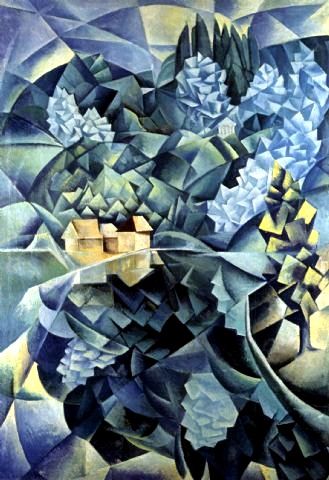Portrait of Akhmatova by Petrov-Vodkin, 1922
Anna Akhmatova
(1889-1966)
(1889-1966)
А
ты думал — я тоже такая,
Что можно забыть меня,
И что брошусь, моля и рыдая,
Под копыта гнедого коня.
Что можно забыть меня,
И что брошусь, моля и рыдая,
Под копыта гнедого коня.
Или
стану просить у знахарок
В наговорной воде корешок
И пришлю тебе странный подарок —
Мой заветный душистый платок.
В наговорной воде корешок
И пришлю тебе странный подарок —
Мой заветный душистый платок.
Будь
же проклят. Ни стоном, ни взглядом
Окаянной души не коснусь,
Но клянусь тебе ангельским садом,
Чудотворной иконой клянусь,
И ночей наших пламенным чадом —
Я к тебе никогда не вернусь.
Окаянной души не коснусь,
Но клянусь тебе ангельским садом,
Чудотворной иконой клянусь,
И ночей наших пламенным чадом —
Я к тебе никогда не вернусь.
July, 1921
Tsarskoe Selo
Literal Translation
And you thought I was
also like that,
That you could forget
me,
And that I’d throw
myself, pleading and sobbing,
Under the hoofs of
[your] bay steed.
Or I’d begin asking
the conjure-women
To find me a buddy in
their magical potions,
And I’d send you a
strange gift:
My cherished perfumed
kerchief.
May you be damned. Neither
by moans, nor by a glance
Will I touch your
cursed soul.
But I swear to you by
the garden of angels,
By a wonder-working
icon I swear,
By the fiery vapors of
our nights [together]—
That I’ll never come
back to you.
Literary
Translation/Adaptation by U.R. Bowie
So you took me for
some sort of wifey lightweight;
You’d wend on your own
way while I’d weep and I’d plead,
Then hurl myself, hectic-frenetic,
prostrate,
Under the hoofs of
your dashing bay steed.
Or I’d go to a psychic
and ask her advice,
How to conjure a new
lover boy for my bed,
And I’d send you a
gift, something weird but still nice,
Say, a
fragrance-spewed kerchief in hues of bright red.
Go to hell. No moans
of mine, no glances caring
Will purge your soul of
its dark affliction,
And by angel-blessed
gardens I’ll go on swearing,
On sacrosanct icons,
by hell’s pitchest black,
By fumes from our hot nights
of love un-despairing,
I promise, I swear that I’ll never come back.
Translator’s Note:
A Poem Best Never Written
If we assume, as do most
readers, that this poem is addressed to Akhmatova’s errant husband Nikolai Gumilyov
(they were divorced in 1918), no poem in history could have been more inopportune.
Only a month after this work is dated, in August of 1921, Gumilyov was arrested
by the Bolsheviks, charged with participating in a monarchist conspiracy, and
immediately shot.
I don’t know if
Akhmatova ever commented on the irony: you condemn your ex-husband, you damn
him to hell, you swear that you'll never return to him, and a month later he is dead, executed.
I suspect that she wished, more than once, that she could have taken this poem
back and burned it.
Natan Altman Painting
Masha Matvejchuk declaims the poem:https://www.youtube.com/watch?v=v1Adx-qa0GI













